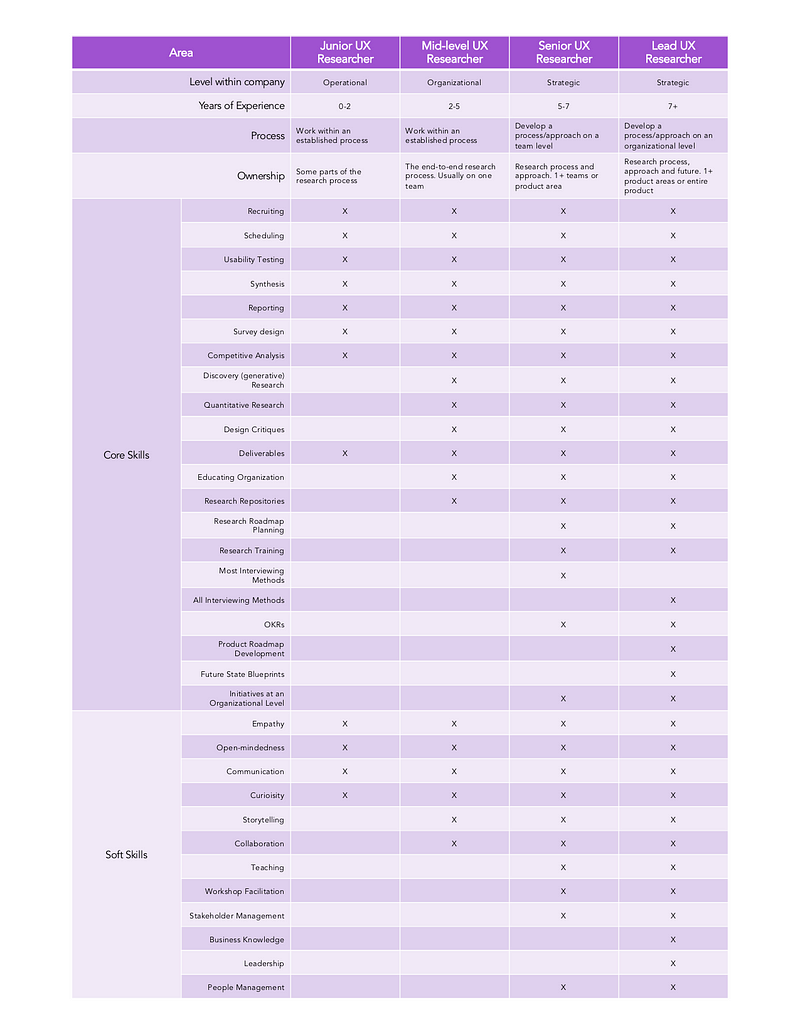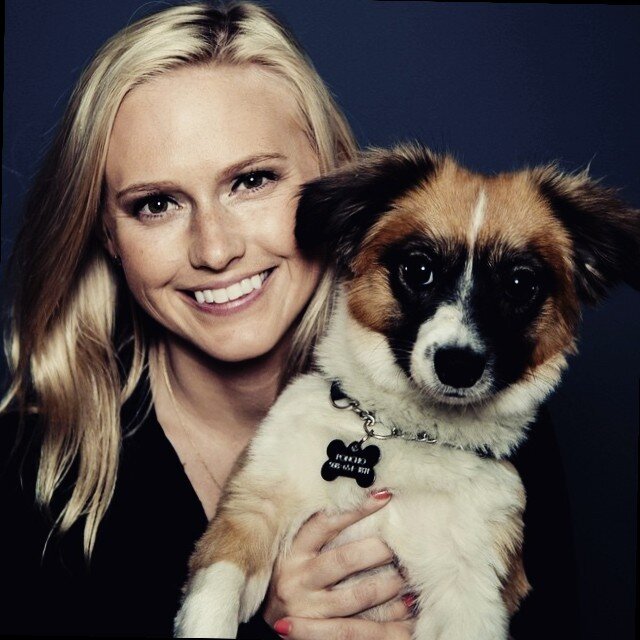Assessing your user research career level, seniority, and path

Career paths are extremely important topics to think about, especially in the context of a more niche field, such as user research. While there is some information online, it is primarily for the broader field of UX and much more focused on the UX design career path. Planning the next 1, 3, or 5 years of your career is never easy. But trying to do so without a lot of guidance or mentorship can be even more difficult.
The reason I know this is because I have recently been trying to figure out what my next step is, and have also failed to plan effectively in the past. This lack of planning has led to confusing and less than ideal roles and situations. Knowing what your current level is, and where you want to go with your user research career, really helps you make sure you are in the best role for growth.
User research career levels
There are a few different levels of user research, and (fortunately) they generally follow the same kind of trajectory as other careers. I have also put a general amount of years of experience but this, of course, can vary. I have seen people in certain roles with much less, or more, experience than is generally “recommended.” I believe an employee’s skillsets and level of maturity are far more important in determining a career level than the number of years someone has been in the field.
I have also measured these against the following areas of impact a researcher could have on a company level:
- Operational: Deals with the day-to-day function of user research
- Organizational: Handles how the company understands and ingests user research
- Strategic: Aids the company in making strategic decisions based on user research
User researcher levels
- Research coordinator: Supports the product team throughout the research life cycle, including scheduling, recruiting efforts, participant communication, streamlining research operations and team communications
- Junior user researcher: Embedded in a team to carry out user research activities. They have some practical experience but need regular guidance and training to produce their best work and develop their skills. They generally work in combination with a more senior user researcher
- Mid-level user researcher: Embedded in a team and responsible for planning and carrying out user research activities. They are able to work independently on a team, without too much guidance
- Senior user researcher: Able to plan and lead user research activities in larger teams and on more complex services. They build user-centered practices in new teams and align user research activities with wider plans to inform service proposition. They may supervise and develop other user researchers to assure and improve research practice
- Lead user researcher: Leading and aligning user research activities across several teams. They ensure that teams take a user-centered, evidence-based approach to service design and delivery. They develop and assure good user research practices
- Head of user research: Leads user researchers in an organization and attracts and builds talent. They are an expert practitioner who can define and assure best practice, influence organizational strategy, and priorities, and collaborate with colleagues across a company.

Different career paths
There are two main career paths for user researchers, and they are similar to those of other industries. In general, you can go one of two paths:
- The individual contributor
- The manager
The biggest question I would ask when determining one of these two paths is to understand: “do I want to help others develop the skills I have?” or “do I want to continue to hone my skills as a research practitioner?”
As a manager, of course, you may still be able to engage in the more tactical side of the job (ex: actually conducting research), but usually, you operate as a people manager, mentor, and strategic partner. As an individual contributor, you will most likely be able to contribute at an operational, organizational, and strategic level. The biggest difference here is whether or not you are mentoring and managing others.
If you feel okay stepping away from the day-to-day and are looking to mentor others in the field, management might be your best bet. If you want to become a super expert in your field, I would stick with being an individual contributor. Of course, the best way is to simply try. As of right now, I have been a senior-level individual contributor and have finally decided to make the leap to management. Let’s see :)
How to assess your level
Now, these descriptions and charts are all generic. They have to be. There is no one description that will be perfect for all. Many user researchers have unique paths and experiences, so it is hard to make generalizations. However, for the purpose of this article, I do my best to help you categorize and see where you can grow.
Here are the steps I take when assessing my level:
- Audit my own skills. I always start by listing out all of my skills and my level of confidence in these skills (“low, medium, high” is totally fine). I also list the skills I would really like to learn next, that I find important for moving to the next level
- Look at the skills in the different levels. I then look through the skills in the level I think I am, and then the levels directly below/above. I also stalk people on LinkedIn at the level I think I am, and the surrounding levels. I see what their experience and skill sets are, and then compare that to mine. I also do a lot of networking and talking to researchers at all levels to get a more concrete idea. Actually talking to other researchers is the best way to do this!
- Consider my past experience. As I mentioned before, skills are one thing and experience is another. I always consider my past experiences, roles, and responsibilities. For example, when I was starting out, I was a UX Research intern but was expected to operate as a more junior/mid-level. With this, I was able to gather different skills and experiences that pushed me almost straight from Intern to mid-level. It is important to take this into consideration.
- Think about my level of maturity. This is especially important when you start to get into the senior/lead positions in the field. It is extremely important that you strongly consider how mature you are as an individual. More and more people will be depending on you on a consistent basis, and you will have much more pressure and feedback coming your way. It is okay if you have not yet had the training to best handle these situations, but they are very critical to consider when you move into these roles. You will also have a level of responsibility for others if you choose the management track
I recommend doing this at least twice a year, as it will give you a better understanding of where you are currently and where you can go in the future. Not only is this great practice to do for yourself but, if you are looking to go towards the managerial track, it will be great practice for your future reports!
What is another aspect of your career that is great to assess regularly? Defining your user research philosophy!
If you liked this article, you may also find these interesting:
- How to Assess Your User Research Interviews
- How to Break Into User Research
- A Week in the Life of a User Researcher
- How to Write a Generative Research Guide
If you are interested, please join the User Research Academy Slack Community for more updates, postings, and Q&A sessions :)
